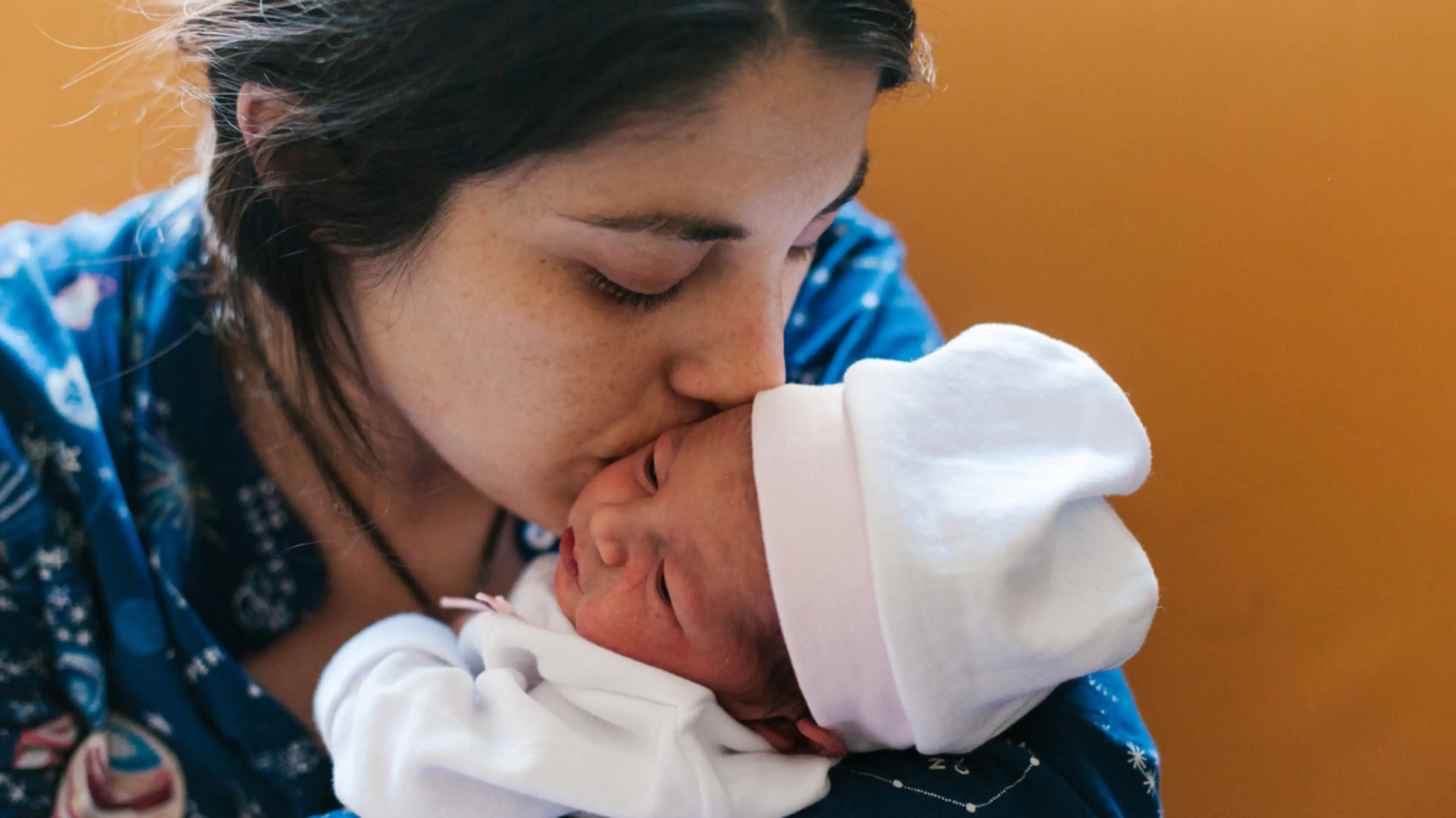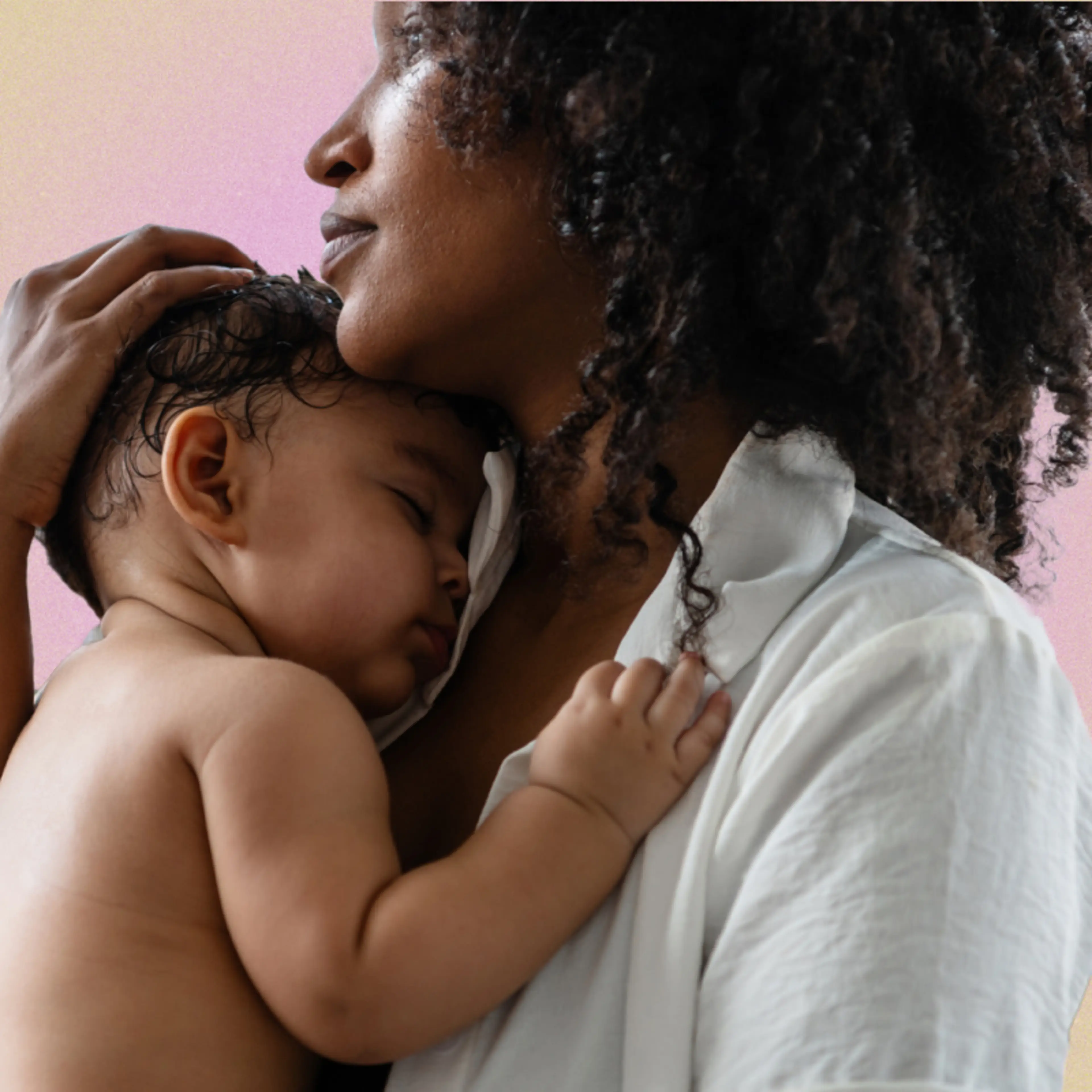Mom guilt moments I’ve experienced recently: when I leave the house for work, and my daughter is crying while reaching her arms out for me. When I check the baby monitor from the bathroom during a dinner date and see she has woken up and is being rocked by her babysitter. When I notice feelings about wanting to be separate from her.
As a woman, a mother, and a psychotherapist, I was taught to center the needs of others. For a long time, I felt a considerable amount of guilt (or what I thought was guilt) every time I prioritized myself instead. After working with moms for nearly a decade, I know that I am not alone in this.
At first glance, mom guilt arises when we don’t live up to our own or others' expectations of us—when we feel we’re not doing enough or that we’re doing the wrong thing. But I’ve found that the root of mom guilt is actually something else—fear. Fear of what it means to want to be away, fear of depending on others to care for our children, fear of being out of control.
If guilt assumes wrongdoing, it’s important when we feel it to ask ourselves: what is it we believe we are doing wrong? What is it that we’re afraid of?
Guilt Keeps Us Feeling Stuck and Choiceless
The problem with guilt is not just that it’s an uncomfortable feeling, but also that it’s a very powerful force that tries to keep things the same by bullying us with “shoulds.” I shouldn’t miss bedtime. I shouldn’t ask for help because I should be able to do this alone. I should be happy. I shouldn’t expose that I feel bored and unfulfilled. These thoughts and feelings aren’t fun to have, so we often try to avoid them.
This can take one of two paths. When you have these feelings, you might jump immediately to action. You do—the relational work, the childcare, the office work, the cleaning—instead of having to feel what our guilt is trying to tell us. Or you try to avoid the feelings of guilt altogether by not putting yourself in situations where you might feel it. You might say no to dinner with a friend, a work trip, or a date with your partner just to avoid having to face the discomfort that arises when you choose you. This can keep you stuck in the same patterns that eventually lead to burnout, prioritizing everyone else first, and feeling resentment.
How to Tackle Mom Guilt
The first thing to understand when it comes to unspooling the hold mom guilt has on you is that these feelings are totally normal. We all have them. But that doesn’t mean they have to have a hold on you that’s so tight it prevents you from saying “yes” to the things you need to feel happy and whole as a person and a mom.
Getting curious about why you’re feeling this way rather than immediately bowing to it gives you the power to shift your relationship to guilt. By going deeper into these feelings, you can start unraveling them so that you can make decisions and take action based on what you actually want to do rather than from a place of fear.
I’ve found that these five questions are a great place to start that work. They aren’t easy questions, but sitting with them will help you release the guilt you’re holding onto so that you’re free to live life according to your wants rather than the “shoulds.”
1. Is your guilt because you’re doing something wrong or because you’re afraid that something bad will happen?
Fear is never a problem. It’s actually avoiding the fear that keeps us stuck. I invite you to move towards your fear by asking: what are you afraid will happen if you do miss bedtime? If your baby is comforted by someone other than you? If you switch to formula for your own mental health?
Facing these fears and allowing your mind to explore your worst-case scenarios can help loosen the grip they have on your choices. Is this fear actually an indicator that something bad will happen or is it simply an indicator that you are a new mother navigating a new territory? It’s hard but important work to normalize the anxiety that springs from the question “what do I want?” when you’ve spent most of your time figuring out “what do others want from me?”
2. What is the origin story of your guilt?
Consider the messages you received in your family or community about putting your needs first. Many women tell me they were told they were “selfish,” or “self-indulgent.” Others witnessed the “selfless” and exhausted mother, who denied herself and spent years mad about it. Maybe when you’ve asserted yourself with a boss or teacher you were shamed for it.
If you’re holding yourself to an unrealistic standard, then you will likely critique your humanness in comparison. This can lead to feeling like you’re failing, even if you aren't. Figure out where the pressures you are putting on yourself come from, and continue to wrestle with the idea of “sacrifice” in parenthood by asking yourself: who is this really serving?
3. What would it be like to normalize both/and thinking?
It’s normal to be so elated and relieved to have this new being in your life and also to deeply miss the life you had before. Sometimes when we want something so much and then it doesn’t feel like we thought it would, we try to shame ourselves into gratitude rather than acknowledge that picking one path makes us lose others.
But it’s normal to feel two seemingly opposing things at once. The suffering we experience isn’t from having multiple, or even conflicting emotions, it’s from trying to deny or avoid feeling all that we do.
4. What if your guilt is really anger turned inward?
Guilt likes to trick us into believing that the problem is inside of us, rather than outside in our environment. Anger, if we allow it, can be our savior. It helps us see what’s not fair and points us to evidence that there is something out of balance.
Maybe you're not feeling guilty about being frustrated with your baby, but rather angry that you don’t have access to affordable childcare. Maybe you're not feeling guilty for texting when you’re with your baby, but rather angry that you don’t have a supportive partner to step in when you need a break. Maybe you're not feeling guilty for not being able to "do it all" but rather angry that you don’t feel comfortable revealing how much you're struggling.
Instead of taking action against yourself in the form of guilt, try to identify what in your environment or relationships needs to change in order to both feel better and parent better.
5. Where am I overfunctioning?
I’ve noticed that most of the moms who feel guilty aren’t the ones who aren’t doing enough, but rather those who are doing too much. It can be helpful to examine the areas where you are feeling resentful, irritable, or drained and ask yourself if they’re serving you and your baby, or if you’re doing those things because you’ve been conditioned to be the one who attends to others needs, gets shit done, or denies her own needs. Ask yourself how overdoing it might be helping you to avoid your fear of asking for help or your anger that no one is offering.
As you start to work through your feelings, consider sharing them with someone who is invested in your and your baby’s wellbeing. Shining a light on mom guilt has the power to dispel it.












